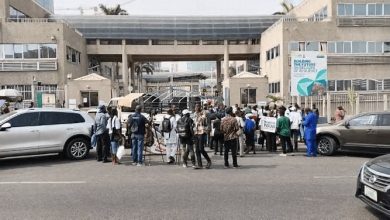Sanusi accuses Tinubu of worsening Nigeria, rejects claim of dilapidated inheritance

Former Central Bank Governor, Sanusi Lamido Sanusi, has publicly rejected President Bola Tinubu’s claim that he inherited a dilapidated Nigeria from his predecessor, Muhammadu Buhari, asserting instead that the current administration has exacerbated the nation’s economic and social challenges.
In a comprehensive critique, Sanusi listed what he described as reckless and extravagant government spending that contradicts the narrative of inherited decay.
He cited the N21 billion spent on renovating the Vice President’s residence and N70 billion allocated to National Assembly members for the purchase of luxury SUVs, with each vehicle reportedly costing N160 million.
Further allocations drew sharp criticism, including N4 billion for the renovation of Dodan Barracks and an additional N3 billion for Aguda House.
The Presidential Tax Reforms Committee, chaired by Taiwo Oyedele and comprising fewer than 20 members, reportedly received N5 billion, yet achieved no tangible outcomes.
Sanusi also pointed to N1.5 billion allocated for vehicles for the First Lady, Senator Oluremi Tinubu, despite the office not being constitutionally recognized.
The former central bank governor criticized a 300 per cent salary increase for judges, noting that the legislation was approved rapidly by a Senate he described as indifferent and irresponsible.
Additional expenditures included N5 billion for the presidential fleet, another N5 billion for a presidential yacht, and an alleged N225 billion spent on a new presidential jet.
The 2024 Hajj pilgrimage was reportedly allocated N90 billion, and billions were spent on foreign trips for the President and Vice President.
Sanusi also noted that senators now earn N21 million monthly, while members of the House of Representatives earn N13.5 million, all salary increases approved under the current administration.
Sanusi raised concerns over the awarding of the Lagos-Calabar Coastal Road contract, valued at N15 trillion, which he claimed was given illegally to businessman Gilbert Chagoury, who had previously been repatriated during former President Olusegun Obasanjo’s tenure.
The former governor described other governance trends as alarming.
He questioned the financing of Nigeria’s largest cabinet in history and the creation of a new Ministry of Livestock Development, which runs counter to recommendations from the Oronsaye Report that advised merging and downsising ministries to reduce costs.
Sanusi also demanded transparency regarding the fuel subsidy removal, asking how much was saved and how the savings were utilized.
According to Sanusi, ordinary Nigerians are facing a deteriorating quality of life.
He said the cost of governance has increased rather than decreased, fuel subsidies were removed without mitigation measures, electricity tariffs have risen, and education and healthcare are now unaffordable for the average citizen.
Prices of food and basic goods are escalating, insecurity and killings are on the rise, the economy is weakening, and unemployment is increasing.
He further accused the government of institutionalizing corruption and nepotism, while security votes and leaders’ allowances remain untouched, and no direct support systems exist for ordinary citizens.
Sanusi criticised the lifestyles of President Tinubu, his ministers, governors, top officials, service chiefs, and agency heads, describing them as reflective of reckless opulence rather than the austerity expected in a country supposedly facing dilapidation.
He argued that while the leaders are growing wealthier, citizens are becoming poorer, and the stark contrast between the personal transformation of the president and the suffering of Nigerians is a clear indictment of the administration.
He warned that the current trajectory of governance must be reversed immediately, describing the leadership as insensitive and reckless, and urging for a course correction to restore accountability and alleviate the hardships of Nigerian citizens.



